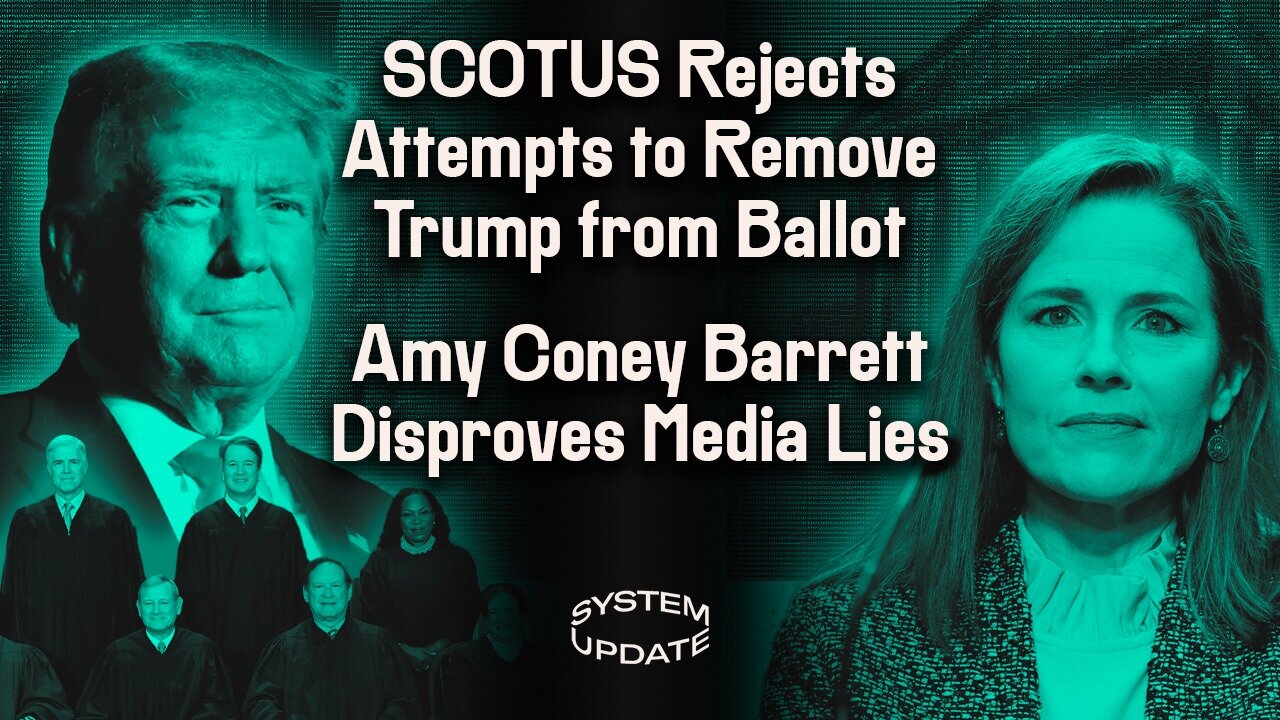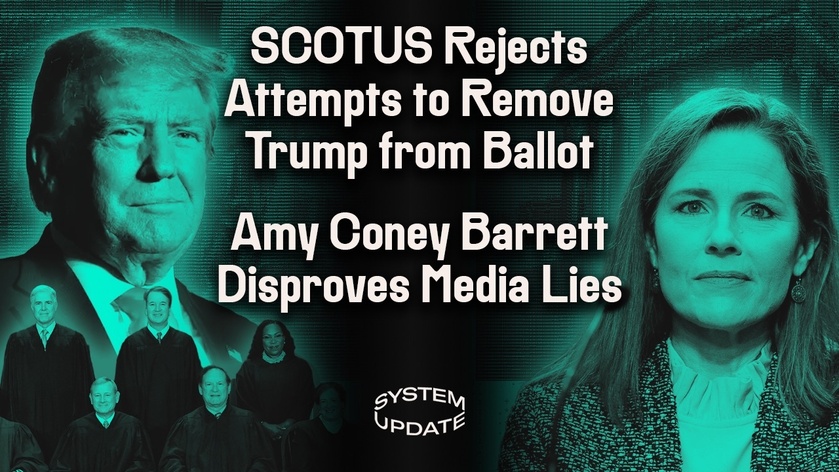Watch the full episode here:

Good evening. It's Monday, March 4, 2024.
Tonight: the U.S. Supreme Court today decided one of its most important and consequential cases involving the U.S. presidential election, arguably its most important such decision since the 2000 ruling in Bush v. Gore that ended all recounts in Florida and effectively made George W. Bush the winner over Al Gore. Today, by a unanimous 9 to 0 vote, the Court overturned the decision of the Colorado Supreme Court, a court composed entirely of Democratic Party judges, which in December had banned Donald Trump from appearing on the ballot because he was guilty of insurrection—a crime with which he has never been charged, let alone convicted— and thus ineligible to run under Section 3 of the 14th Amendment.
All nine justices today, including liberal judges Elena Kagan, Sonia Sotomayor, and Ketanji Brown Jackson, rejected that rationale, ruling that states have no power to ban candidates from federal elections, especially presidential ones. Today's ruling not only overturns Colorado's attempt to ban Trump from the ballot but, presumably, several other instances where Democratic state officials or state judges banned Trump for similar reasons, the most recent being a low-level judge in Chicago who often, when not banning Donald Trump from the ballot, hears traffic violation cases.
On one ancillary issue—whether the banning of a candidate on 14th Amendment grounds can only be decided by Congress, rather than acts of the executive branch—the Court did divide along typical ideological lines, although, with Amy Coney Barrett joining the three liberal judges in dissent, who argued that once it was determined that states are barred from banning candidates as all nine justices agreed, there was no reason to go beyond that and decide any other questions, including whether only Congress could make such a determination. But as Amy Coney Barrett pointed out in her short concurring opinion, “Our differences on the court today are far less important than our unanimity. All nine judges agree on the outcome of this case. That is the message Americans should take home.” We'll review today's ruling, its substance and its implications, and we'll take a look back at how many self-described legal experts and neutral journalists were so insistent that Colorado had so clearly decided this question correctly, only for it to be completely and summarily shot down by a unanimous Supreme Court—something very rare these days, unanimity on the court.
All of this points to the most destructive pathologies in our media class: one is the complete lack of accountability—when journalists and their chosen experts and pundits get caught lying for partisans or masquerading their ideological expertise, which are really ideological opinions, as neutral expertise, there's virtually never any accountability or even acknowledgment making journalism and punditry among the most accountability-free professions in this country.
Then, speaking of pundit-free accountability, when Donald Trump nominated Amy Coney Barrett to replace the secular liberal saint Ruth Bader Ginsburg, an accusatory theme instantly emerged about her in establishment liberal discourse. It was clear this framework held that Coney Barrett had accepted a corrupt arrangement, namely, that Trump would put her on the Supreme Court in exchange for her explicit commitment to rule in his favor and keep him in power in case he lost the 2020 election. You may not remember that, but you can find article after article and cable show after cable show making that accusation explicit. Since then, Justice Coney Barrett has in fact had more than a dozen opportunities to intervene on the court and help keep Trump in power, and she refrained from doing so every single time. In fact, just today, she again sided with liberal justices not for the first time and clearly on principle, to try to limit a court ruling that would have been beneficial to conservative political aims if it had been expressed more broadly. In other words, she has proven to be the exact opposite of what establishment neoliberals casually maligned her as being when she was picked by Trump to go to the Court. Do you think there will be a single one of those people reconsidering their accusations and retracting them in light of her actual conduct? To ask the question is to answer it and to reveal so much about why our media class deserves all the distrust and contempt they have attracted.
And finally, there's another subtle yet more pernicious aspect revealed by all of this, namely, how most expertise in the United States has been sacrificed at the altar of partisan agendas and ideological fervor, particularly in the Trump era, degrading this expertise from what it should be and actually could be, at its best, an apolitical means of understanding complex issues, and instead turning it into yet another untrustworthy political weapon, completely crippled as a useful tool. It is not just what was said about Colorado's ruling by legal experts that demonstrates this, but several related episodes that happened recently, which we will cover in full to illustrate the point that we're making.
For now, welcome to a new episode of System Update, starting right now.






















